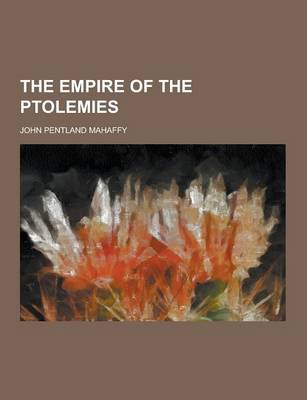Cambridge Library Collection - Classics
4 total works
The classical scholar J. P. Mahaffy (1839-1919) is known equally for his work on Greek texts and Egyptian papyri (his edition of The Flinders Petrie Papyri is reissued in the Cambridge Library Collection). He graduated from Trinity College, Dublin and spent the rest of his working life there, as a fellow, and ultimately as provost from 1914 until his death. In this 1874 work, Mahaffy attempts to penetrate what he describes as the 'subjective side ... the feelings of the Greeks in their temples and their assemblies, in their homes, and their wanderings'. He considers the methodology to be used in interrogating works of literature for this sort of sociological, or even psychological, research, and examines the written evidence from Homer to Menander, focusing, almost inevitably, on Athens. This is an early and pioneering work in an area of study which has become increasingly significant over the last century.
The classical scholar J. P. Mahaffy (1839-1919) is known equally for his work on Greek texts and Egyptian papyri (his edition of The Flinders Petrie Papyri is reissued in the Cambridge Library Collection). He graduated from Trinity College, Dublin, and spent the rest of his working life there, ultimately as provost from 1914 until his death. In this illustrated 1887 work, Mahaffy describes Alexander's extraordinary conquest of territories in Europe, Africa and Asia, the collapse of his empire after his death, and the later subjugation of the successor kingdoms to the power of Rome. With his American collaborator Arthur Gilman (1837-1909), Mahaffy discusses Alexander's place in history before giving a close account of his career and death. The successor dynasties, and dominant rulers such as Demetrius II and Pyrrhus, their feuds and their attempted resistance to the rise of Rome, are depicted in an engaging and dramatic narrative.
The classical scholar J. P. Mahaffy (1839–1919) is known equally for his work on Greek texts and Egyptian papyri (his edition of The Flinders Petrie Papyri is reissued in the Cambridge Library Collection). He graduated from Trinity College, Dublin and spent the rest of his working life there, as a fellow, and ultimately as provost from 1914 until his death. This work, in which Mahaffy records his impressions of his first visit to Greece, was published in 1876. Though it is not uncritical ('Nothing is more melancholy and more disappointing than the first view of the Athenian museums'), his account of the famous Greek sites of Attica, Thebes, Delphi and the Peloponnese is lively and observant, and his preface strongly argues that Greece, at a time of turmoil in Europe, was deserving of greater support from the western powers. The book will be of interest to scholars and travellers alike.
The classical scholar J. P. Mahaffy (1839-1919) is known equally for his work on Greek texts and Egyptian papyri (his edition of The Flinders Petrie Papyri is reissued in the Cambridge Library Collection). This illustrated work of 1895 is a sort of sequel to his Alexander's Empire of 1887 (also reissued in this series), in which he focuses specifically on the dynasty of the Ptolemies, rulers of Egypt, but also, as he points out, of wider territories and subject kingdoms. The study of the successor states of Alexander was in its infancy at this period, and Mahaffy regards this work as a pioneering discussion of various problems raised by the limited literary record, hoping this will stimulate further research, in the welcome context of an increasing number of archaeological discoveries relevant to this late period in the long history of ancient Egypt.

